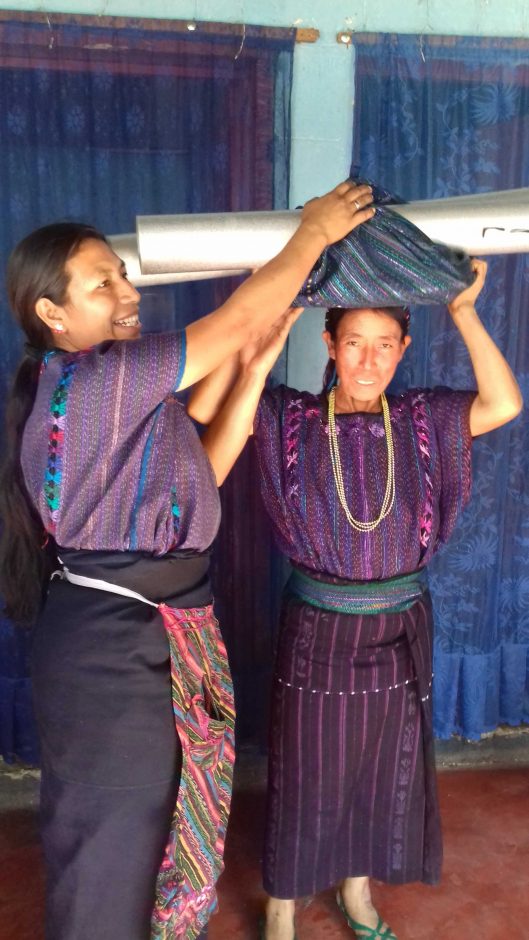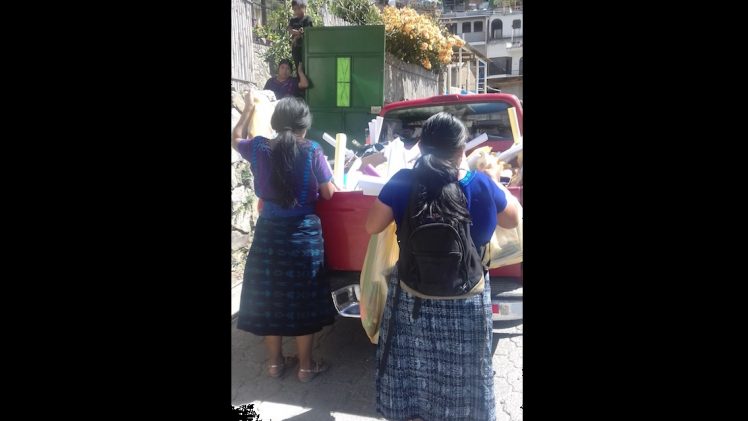In March 2020, Kathy and I were in San Antonio Palopo. As part of the review of all of our programs, we looked at the Stove program. We visited some homes to see how the stoves were working. We also discussed a complementary gas stove program which has been underway for about 5 years. And we had in depth discussion with Brenda, who has spearheaded our Onil stove program for many years.
The most important consideration appears to be the individual attitudes and lifestyle of each household. It must be a decision that the recipient makes, not something thrust upon them. We learned that there are some households who have moved to gas stoves, and are really happy with them. There are other families who are adamant that they do not want to use gas stoves, and for them, an efficient wood stove is the answer. And in some families, the younger generation wants gas and the older generation, wood. Both approaches have pros and cons for the families involved.
 |
Ongoing cooking costs are another factor. Assuming that both methods are used correctly, at today’s prices for wood and gas, it seems that gas is less expensive. However, it is also true that wood can be scavenged effectively, so that if a family has absolutely no money, an efficient wood stove might be better for them.
Another consideration is that since our initial installation program, new households have formed. It is possible that installation of additional efficient wood stoves might be justified.
Our conclusion is that in 2020 we should continue our Check and Replace program, where families with existing stoves are visited, their stoves checked to see if they’re in good shape, and ICO pays for half the cost of necessary replacement parts. Circumstances permitting (and who knows what the situation will be), Brenda and Petrona – our knowledgeable stove experts – will start the process of checking the stoves this summer, and have the parts delivered by early November.


